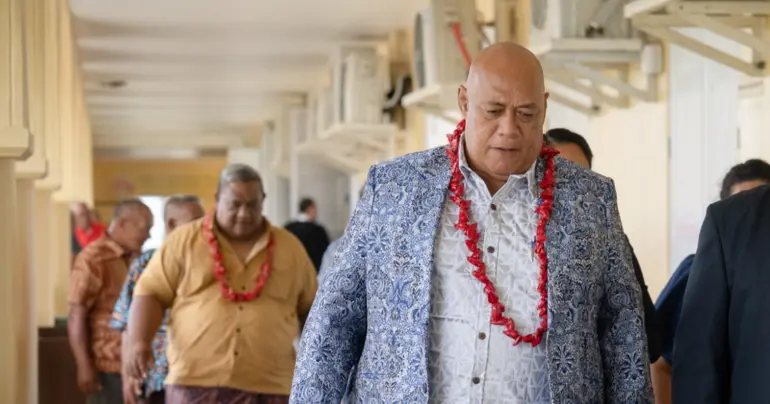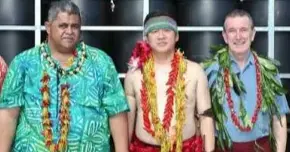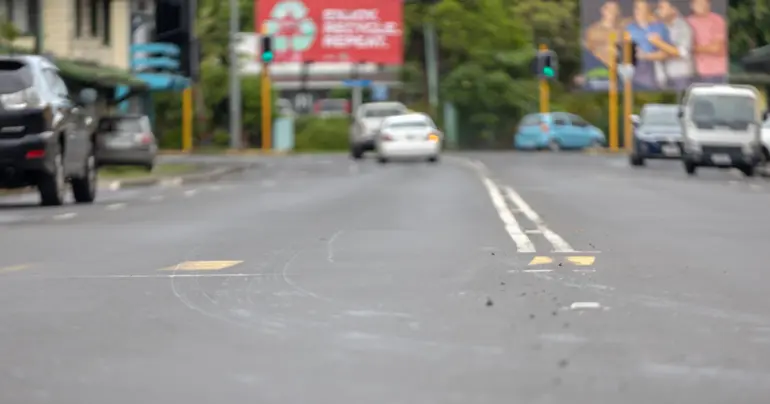Deported U.S.P. Vice-Chancellor open to Samoa move
 By James Robertson
•
05 February 2021, 7:00PM
By James Robertson
•
05 February 2021, 7:00PM
The suspended Vice-Chancellor of the University of the South Pacific (U.S.P.) would accept an invitation to move to Samoa and run the university from Apia after his sudden deportation from its Fiji headquarters.
Professor Pal Ahluwalia was deported from Fiji, the site of the university’s main campus, without warning following a late-night raid on Wednesday and his deportation to Australia the following day.
“Yes absolutely, I would be delighted to run U.S.P. from Samoa,” the Vice-Chancellor said in an exclusive interview with the Samoa Observer.
Yesterday the Education Minister, Loau Keneti Sio, expressed hope that Professor Ahluwalia could continue to run the university from its Samoa campus.
“I have tremendous respect for the Education Minister and the Prime Minister,” he said.
The announcement comes as U.S.P.'s council voted to suspend Professor Ahluwalia but not sack him to allow for the circumstances surrounding his deportation to be investigated, during a meeting on Friday afternoon.
"The Council was not consulted over Professor Pal Ahluwalia’s deportation, that it has not made a decision to dismiss him and expressed disappointment that it was not advised, as Professor Ahluwalia’s employer, of the decision to deport him," a statement by the university council issued on Friday night said.
"The Council has established a sub-committee, chaired by the President of Nauru including the Council Representatives of Australia, Tonga, Niue, Solomon Islands, Samoa and two Senate Representatives to look into this matter."
In the meantime, Dr Giulio Masasso Tu'ikolongahau Paunga, will be Acting Vice-Chancellor and President.
On Thursday the Vice-Chancellor initially said he was intending to immediately leave Australia for Nauru once his quarantine was completed to continue his duties there. But his new comments now raise the prospect he could be bound for Apia if he is reinstated as the Vice-Chancellor.
On Thursday, Loau said he would advocate moving Professor Ahluwalia to Apia to continue his work as Vice-Chancellor.
“We have got to come up with a plan B and hopefully bring him here so that he can administer from here and work from here,” he told the Samoa Observer.
“Fiji [has been] coming in and them trying to protect, [to] put it that way, their people that are implicated with [audit reports into the university.”
Attempts to contact Loau on Friday about the Professor's suspension were not successful.
The Professor said that Samoa had recently played a critical role in changing a Fiji-centric culture of the regional University, which is collectively owned by 12 Pacific states.
On Friday Professor Ahluwalia's fate was decided by the university’s council; a group of about 30 representatives from each member state.
Attempts by the Vice-Chancellor to dial in and participate in the council were frustrated on Friday.
“The meeting itself is controlled by the Pro-Chancellor and he’s locked me out,” he said from a hotel in Brisbane where he was undergoing quarantine."
Thursday’s deportation was the culmination of a long-running conflict between the university's now suspended Vice-Chancellor and other senior staff at the university who made up its executive committee.
Professor Ahluwalia wrote to the university council about a culture of improper staff salaries, bonuses and other allowances.
In January, a report by the accounting firm B.D.O. Auckland found widespread problems of mismanagement within the university.
“Remuneration mechanisms have collectively been exploited and have led to significant cash leakage across the U.S.P. over a number of years,” the report found.
“Bonuses and, in some cases, multiple bonuses have been paid extensively to staff which is in breach of the U.S.P. policies.”
A commission was appointed by the university to investigate the allegations. Samoa’s then Deputy Prime Minister, Fiame Naomi Mata'afa, played a key role in investigating the allegations of impropriety.
Fiame was vocal in her criticism of the Fijian Government’s decision on Thursday: "What it appears is that the Fiji government is protecting its representation and therefore they are protective of corrupt practice.”
The then-Vice-Chancellor’s correspondence with the council drew him into a conflict with the University’s Pro-Chancellor, Winston Thompson, and his allies who moved to oust him in June last year.
But he was soon reinstated after 26 allegations levelled against him were found to be unsubstantiated,
Professor Ahluwalia was deported from Fiji for alleged breaches of the country’s Immigration Act and posing a risk to public order.
"No foreigner is permitted to conduct themselves in a manner prejudicial to the peace, defence, public safety, public order, public morality, public health, security or good government of Fiji," a statement from the Fijian Government said.
On Friday he told the Samoa Observer he was still reeling from the surprise raid upon his house.
“They broke into our house just before midnight; they did a COVID-19 test and got Australia’s consent [for deportation],” he said.
“Both my wife and I are in some sort of surreal zone at the moment.
“We are confident that the Lord will protect us and we’re confident that the council will do the right thing by us.”
Professor Ahluwalia said more than 10 agents of the Fijian state were involved in his and his wife’s forcible detention and later deportation.
Though non-member states, Australia and New Zealand are two of the university's most significant donor partners.
A spokeswoman for the New Zealand Ministry of Foreign Affairs and Trade did not say whether the Government would support moves to relocate the Vice-Chancellor and the university's management core to Apia":
"We will work with other Members, including the University’s Council, to address the implications of this action and agree on a way forward," she said.
An Australian foreign ministry spokesman, meanwhile, said: "The university is a vital regional institution and is supporting skills and education as the region recovers from COVID-19.
"The USP governance framework is being used to address management issues. A USP Special Council Meeting is scheduled for 5 February 2021. Australia will participate as a Council member."
 By James Robertson
•
05 February 2021, 7:00PM
By James Robertson
•
05 February 2021, 7:00PM











